Building the Future of Leadership-in-Action: A Collaborative Model in Cape Town
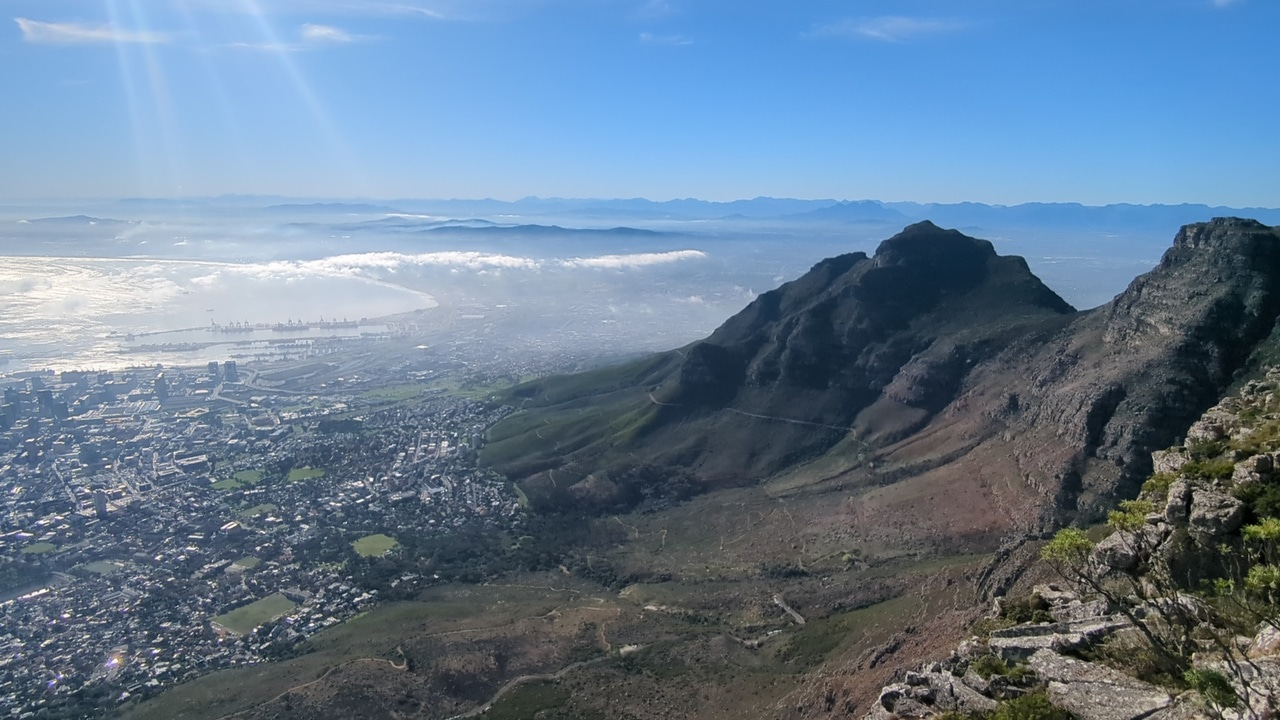
Hello Laidlaw Scholars!
I’m writing from Cape Town, South Africa, where I’m currently leading a multi-scholar Leadership-in-Action project at SOS Children’s Villages — a home to orphaned, abandoned, and vulnerable youth. We're now entering Week 3 of Session A, and I wanted to share a snapshot of the journey so far and spotlight the amazing scholars involved.
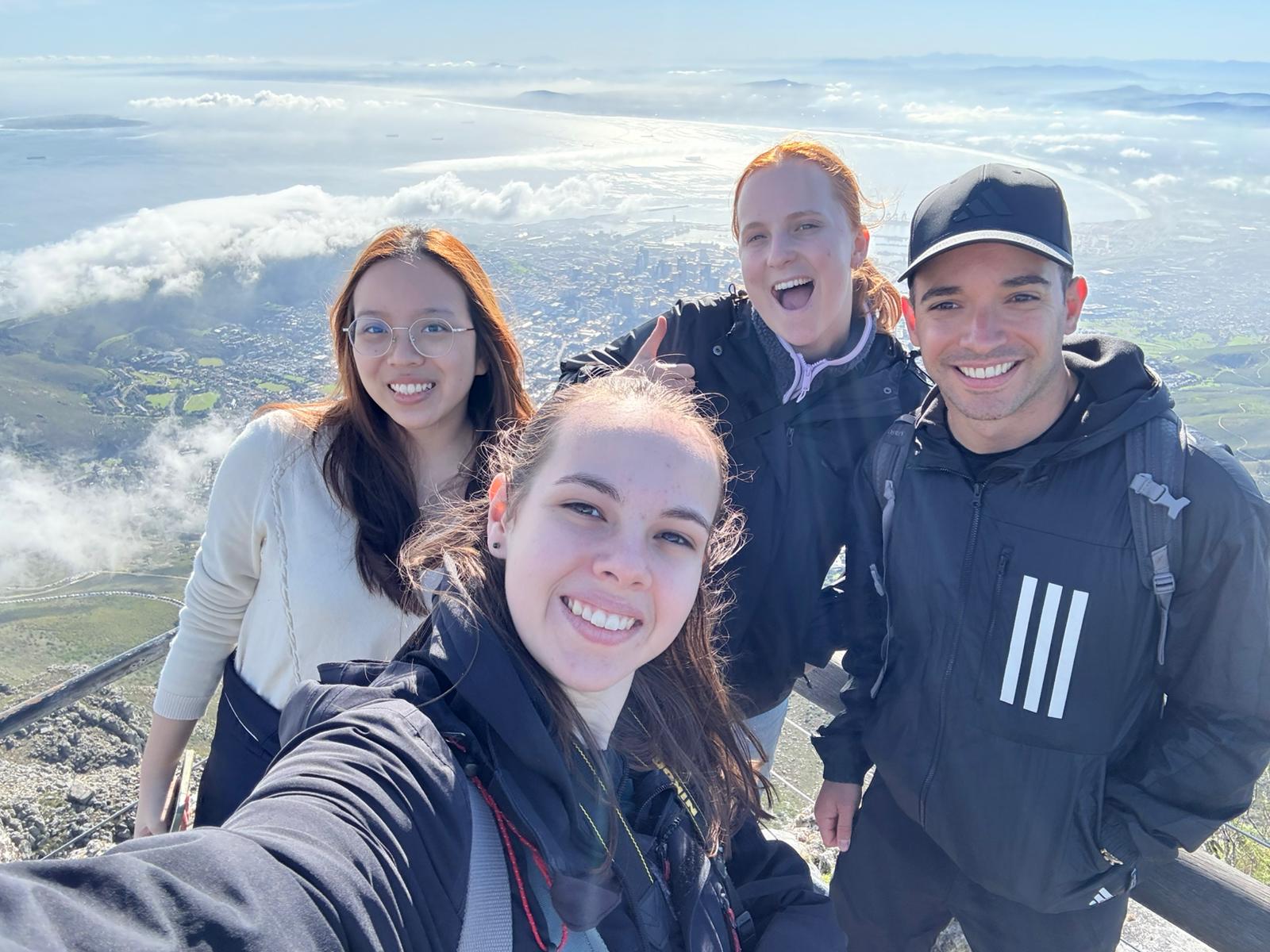
This project builds on the work I began during my 2024 LiA at SOS Cape Town, where I piloted a comedy-based mental health program for youth. That experience has since grown into HaHaHelps, an organization I founded that uses humour as a healing tool for children and communities facing adversity.
This summer, I’ve returned not only to expand my own work — but to support a team of fellow Laidlaw Scholars in launching their own six-week initiatives. With two sessions (A & B) and a wide range of disciplines represented, this has become a kind of Leadership-in-Action 2.0 — a collaborative, multi-scholar model designed to amplify impact, cross-pollinate ideas, and offer deeper support to both the youth and the scholars alike. In many ways, it’s a thoughtful blend of the independent LiA model and a centralized group approach — combining the creativity and ownership of solo projects with the structure, peer support, and shared learning of a collective experience.
🗓️ Project Timeline So Far:
Week 1: Trust & Relationship Building
Rather than diving straight into structured programming, we began with a slow, intentional introduction — scholars spent time inside the children’s homes alongside the child and youth care workers who live with them. This informal, relational approach helped the scholars build trust through presence, play, and genuine connection. Many of these youth have experienced instability and trauma, so establishing safety and familiarity before any formal sessions was essential.
Week 2: Cultural Immersion
In order to engage responsibly and meaningfully, scholars first needed to understand the broader social and historical context in which they’re working. We spent the week immersing ourselves in Cape Town’s complex and layered history — visiting sites like Table Mountain, the District Six Museum, Zeitz MOCAA, the South African National Gallery, and attending local theatre and comedy shows. These experiences deepened our understanding of identity, displacement, creativity, and resilience — all central themes in our programming with the youth.
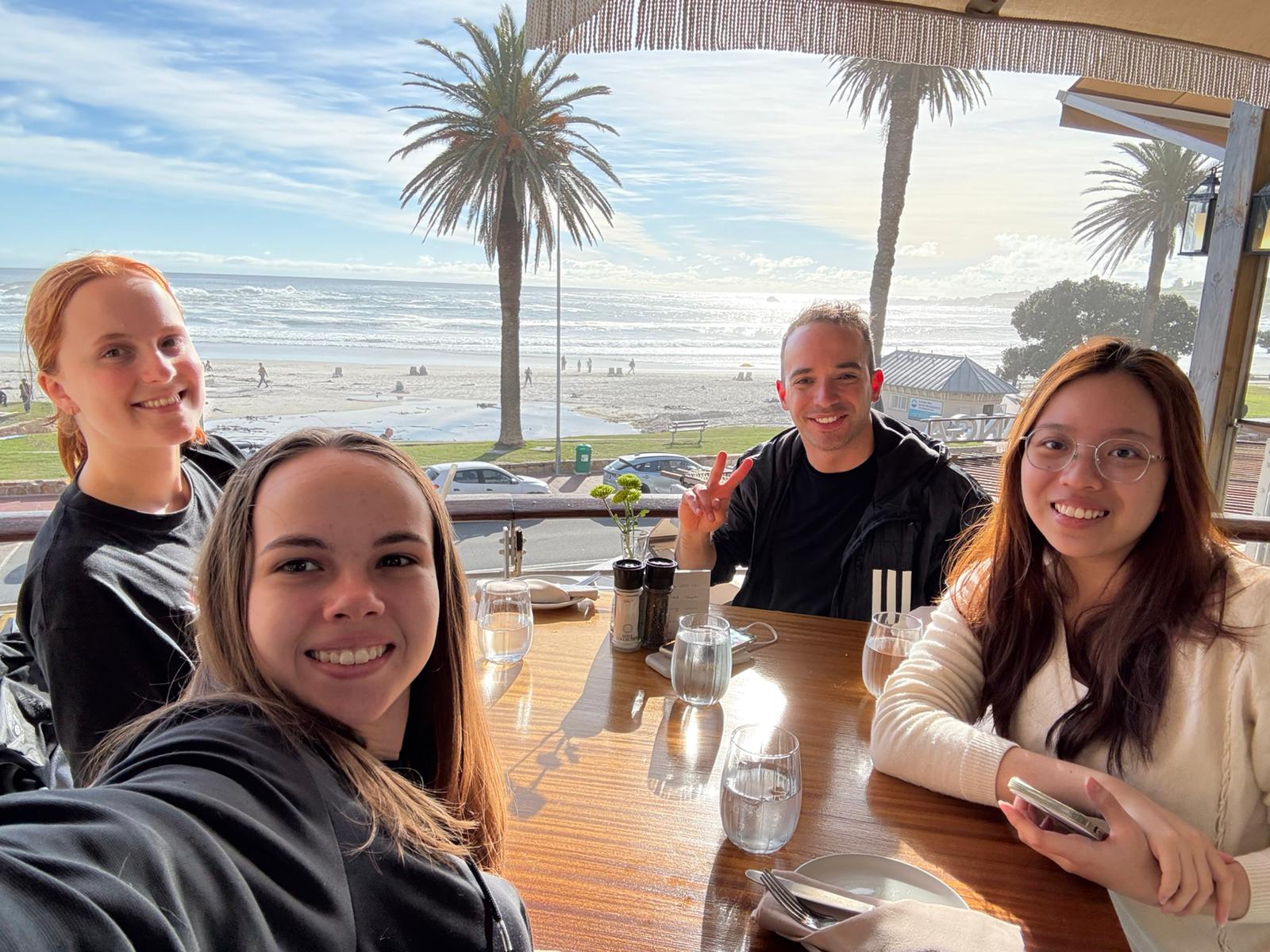
Week 3: Full Programming Begins
With trust established and context gained, each scholar launched their full-time program this week — ranging from dance therapy and literacy to mental health and photography. What’s been most inspiring is how adaptive and responsive the scholars have been: several are already expanding their sessions based on the interests, energy, and emerging needs of the children.
Programming is taking shape not as something delivered to the youth, but with them.
👇 Meet the Session A Scholars (Currently On-Site):
Jane Emmins (Trinity College Dublin)
Leads a Dance & Movement Therapy program reaching children as young as 4 and as old as 17. Her sessions are divided by age group — one for younger children, and another for teens — using movement, improvisation, and choreographed storytelling to foster emotional regulation, confidence, and creative expression. The impact is already visible: many children can now be seen around the center in between sessions practicing their dances together in small groups.
Felicia Gan (University of Hong Kong)
Runs a Creative Literacy & Bookmaking program with children aged 6 to 11. Each storytelling session is followed by a relevant art activity, allowing children to explore and reimagine stories through drawing, crafting, and bookmaking. Due to the high demand and enthusiastic engagement from the youth, she will be expanding her sessions to include more students starting next week.
Helen Henwood (University of Leeds)
Facilitates a Mental Health & Wellbeing curriculum for teens and caregivers, blending psychoeducation, games, and reflective discussion to build emotional literacy, coping strategies, and intergenerational support. After noticing a strong interest from the youth, she also launched a series of photography classes, where she now teaches the basics of composition, lighting, and visual storytelling. These sessions have become a meaningful outlet for creative expression and self-reflection — allowing young people to document their lives and perspectives through the camera lens.
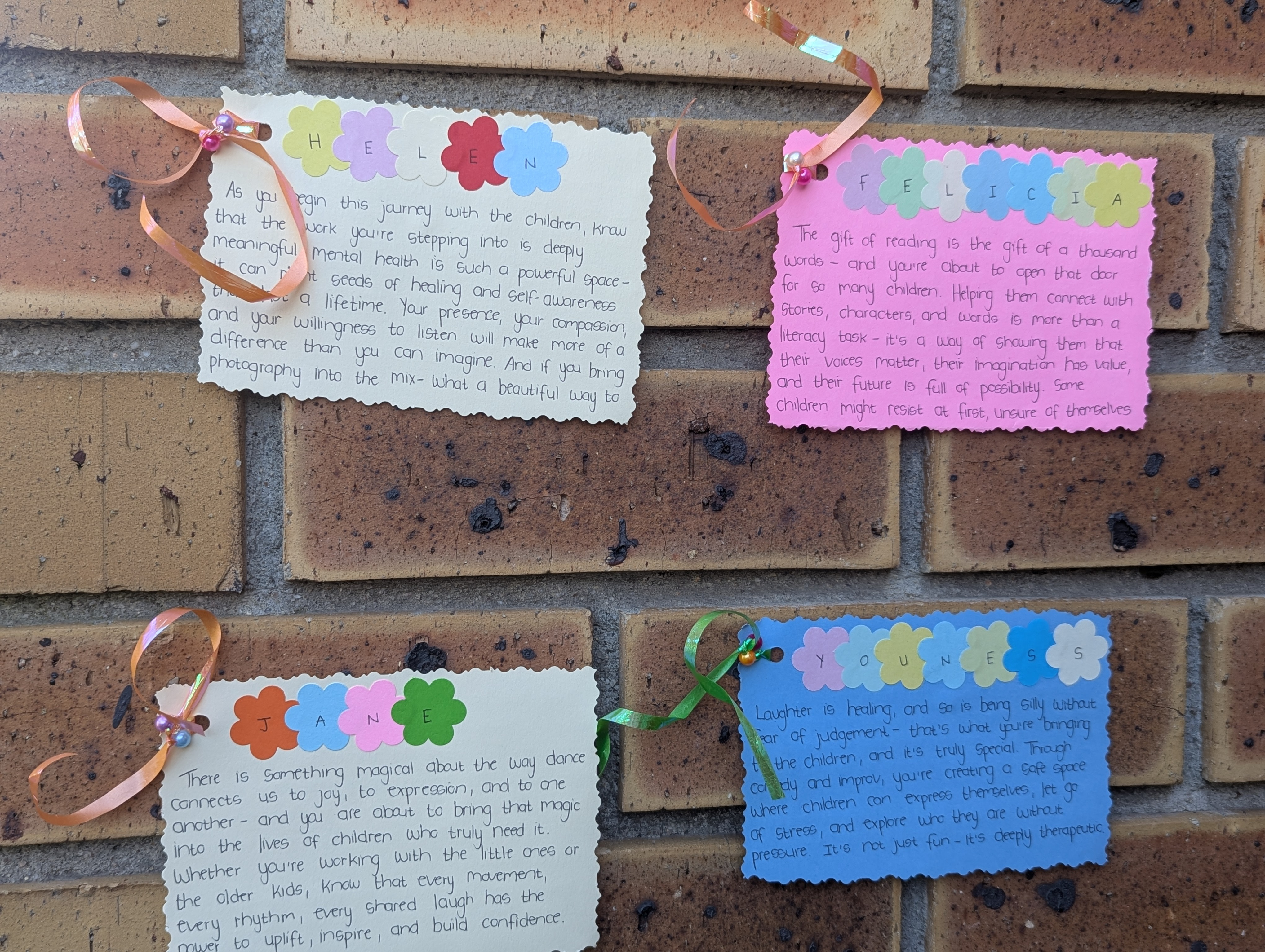
📣 Meet the Session B Scholars (Arriving Late July):
Badria Abdi (University College London)
Will facilitate an immersive storytelling and drama program for younger children, using books, crafts, and roleplay to nurture imagination, empathy, and early literacy.
Jayden Bafoa (University of Cambridge)
Will lead a Sports-Based Leadership & Character Development program that blends physical activity with critical thinking, teamwork, and goal-setting.
Asaph Dworkin (University College London)
Will design and deliver a STEM & Coding initiative aimed at sparking creativity and problem-solving through beginner-friendly programming tools and digital literacy.
As project lead, I’ve also resumed my comedy-based psychosocial intervention and have received formal approval from SOS to begin collecting pre/post survey data to measure outcomes related to anxiety and emotional wellbeing — a step toward building a quantitative foundation for HaHaHelps.
Session B will begin in late July, and the incoming scholars are stepping into an incredibly strong foundation thanks to the care, creativity, and leadership of the current team. I’m looking forward to supporting both cohorts as this next chapter begins — and am deeply grateful to the Laidlaw Foundation for making this all possible.
A special thank you to Amy Moore for her steadfast support and belief in this project every step of the way — her encouragement has truly shaped what this has become.
If you’re currently working on your own Leadership-in-Action project — or considering one for next summer — stay tuned. I’m planning to share a more formal post (and possibly a presentation) on how this collaborative model came together, along with tips for anyone interested in building something similar. In the meantime, feel free to reach out if I can be of help!
More updates soon from Cape Town!
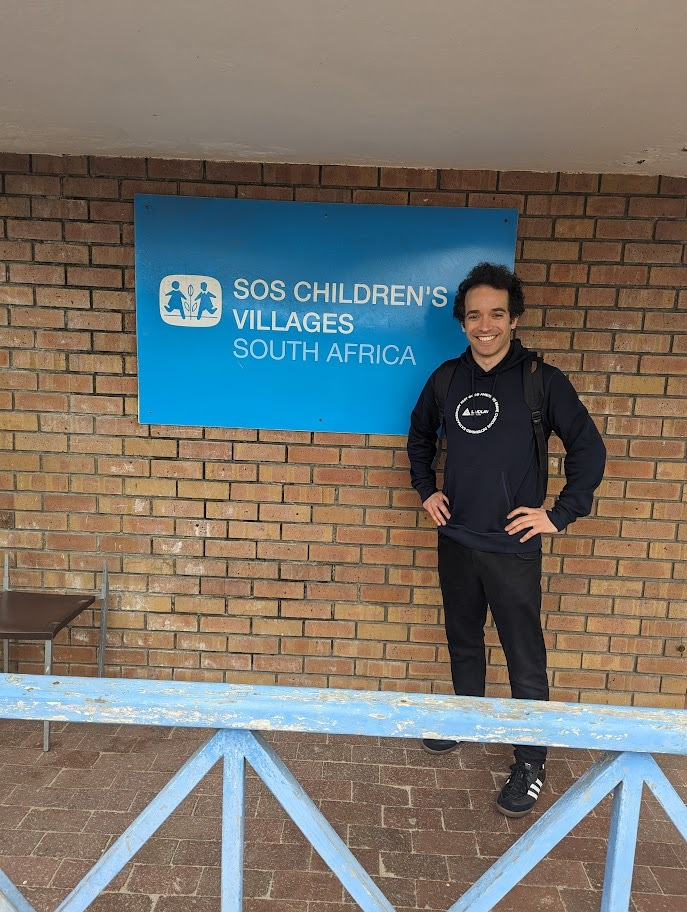
![[Closed] LiA Opportunity: SOS Children's Villages Cape Town – Summer 2026](https://images.zapnito.com/cdn-cgi/image/metadata=copyright,format=auto,quality=95,width=256,height=256,fit=scale-down/https://images.zapnito.com/users/647804/posters/9db789af-7f05-417f-ab56-098d23e845d5_medium.jpeg)
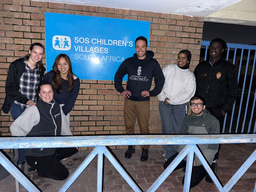



Please sign in
If you are a registered user on Laidlaw Scholars Network, please sign in